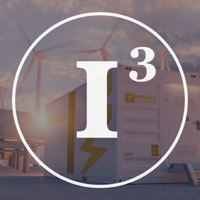DOE Announces Energy Storage Innovations Prize Winners
AMERICAN-MADE CHALLENGE CALLS FOR INNOVATIVE AND EMERGING SOLUTIONS TO LONG-DURATION GRID-SCALE ENERGY STORAGE
WASHINGTON, D.C. — The U.S. Department of Energy’s (DOE) Office of Electricity (OE) today announced the ten winners of the inaugural American-Made Energy Storage Innovations Prize. The American-Made Challenge calls for solutions to grid-scale energy storage. The prize is $300,000.
The Energy Storage Innovations Prize focuses on nascent and emerging technologies that disrupt or advance current state-of-the-art energy storage research areas. As part of DOE’s Storage Innovations 2030 Initiative, this prize is helping industry develop new technologies that have greatest potential to meet grid reliability, equity, and decarbonization goals.
“Cost-effective, long-duration, and grid-scale energy storage is essential to supporting the nation’s electric infrastructure in the transition to clean energy,” said Gene Rodrigues, OE Assistant Secretary for Electricity. “The Energy Storage Innovations Prize showcases American innovation across a wide spectrum of energy storage research areas.”
Of the ten winning teams, OE announced five “Storage Innovations Champions” to receive $50,000 each and five “Storage Innovations Finalists” to receive $10,000 each. These finalists represent an essential part of our country’s innovative minds. To recognize their contributions, all winning teams may be included in a future Report to Congress focusing on the state of energy storage innovations in the United States.
Storage Innovations Champions:
- Cryostone, Houston, TX
- RCAM Technologies, Los Angeles, CA
- Gravity Power LLC, Santa Barbara, CA
- Electrified Thermal Solutions, Medford, MA
- KineticCore Solutions, Loveland, CO
Storage Innovations Finalists:
- Rondo Energy, Alameda, CA
- Thermal Battery Corporation, Cambridge, MA
- THEMES LLC, Houston, TX
- NerG Solutions, Knoxville, TN
- Cache Energy, Champaign, IL
Submissions were judged on the innovation’s quality, including a pathway to DOE’s levelized cost of storage goals, strength of plan, and other unique benefits, such as supply chain considerations and equity.
The Energy Storage Innovations prize also supports the Energy Storage Grand Challenge and Long Duration Storage Shot. These initiatives aim to reduce by 2030 the cost of grid-scale energy storage by 90% for systems that deliver 10 or more hours of electricity. DOE is considering all types of technologies, including electrochemical, mechanical, thermal, chemical carriers, and more.
Learn more about each of the Champion and Finalist proposals at a virtual networking event on Wednesday, March 1 at 12 p.m. EST. During this event, each winning team will have 5-10 minutes to introduce their emerging technology proposal to industry experts and potential collaborators.
Learn more about the Office of Electricity.

